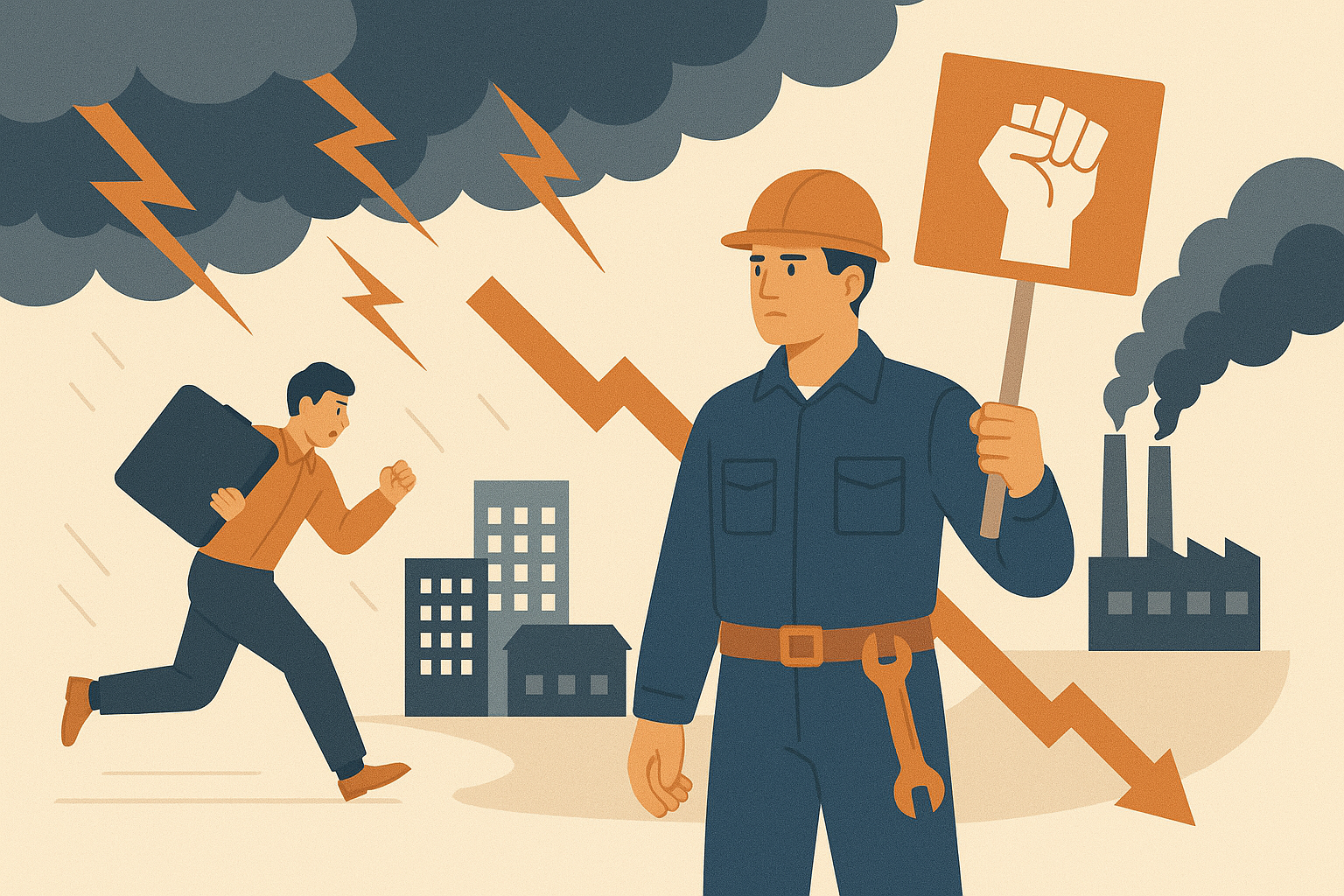Seeking Stability in Chaos: Trade Unions New Strategies for Employment Challenges in Global Changes
Facing the rapidly changing global economy and the AI wave, trade unions are actively planning new pathways for employment security, building a solid future for workers through skill upgrading and strengthening career resilience.

New Workplace Norms and Challenges in Times of Change
The rapidly changing global economic environment is accelerating impacts on traditional employment ecosystems. Escalating trade friction has led to global supply chain restructuring, with some industries facing structural adjustments and even large-scale layoff risks. Particularly noteworthy is that the development of disruptive technologies like artificial intelligence is rewriting operational models across all industries at an unprecedented pace. Automation is no longer limited to manufacturing but is gradually penetrating service industries and knowledge-based work domains, threatening many positions previously considered secure with replacement. The obsolescence cycle of old skills is dramatically shortening, requiring workers to continuously learn and adapt to avoid being swept away by the tide of the times. This is both a challenge and an opportunity for transformation and upgrading, demanding a fundamental renewal of our understanding of "work" and "career."
A New Interpretation of Employment Security: From "Fixed" to "Fluid"
Facing this deep transformation, trade unions' definition of "employment security" has transcended simple job stability, instead emphasizing workers' "mobility" and "adaptability" in continuously changing markets to acquire new jobs and explore new careers. True security lies in empowering workers to master future-oriented key skills, giving them the potential and confidence to cross different industries and transition to emerging positions. The core of this innovative strategy is shifting from "preserving old jobs" to "ensuring the ability to engage in future work." This not only requires workers to have a lifelong learning mindset but also prompts trade unions to provide more flexible and forward-looking support in skill training, career counseling, and policy advocacy.
Skill Reshaping and Labor-Management Collaboration Response Strategies
To achieve this new vision, trade unions are actively promoting multi-dimensional strategies. Foremost is providing immediate income assistance and other relief measures for workers affected by economic adversity, ensuring their basic livelihoods can be maintained. However, this is only a short-term response; more strategically significant measures lie in fundamentally enhancing workers' market competitiveness.
The core strategy focuses on "skill upgrading and retraining." Trade unions deeply understand that only by continuously updating knowledge systems and skill reserves can they respond to the impact of AI and automation. Therefore, they are closely collaborating with businesses and educational institutions to design more forward-looking training programs aimed at cultivating workers' digital literacy, data analysis capabilities, artificial intelligence application skills, and even "soft skills" like critical thinking and cross-domain collaboration. These are not only urgently needed in today's workplace but are also golden keys to opening future career doors.
Particularly worth emphasizing is that trade unions will "activate" their employment security councils. This is not a simple institutional restructuring but rather endowing councils with more proactive functions. Councils will deeply analyze labor market trends, precisely identify potential skill gaps, and serve as bridges for labor-management dialogue to jointly plan human resource transformation pathways. Through such mechanisms, the aim is to promote synchronized development of enterprise growth and worker advancement, achieving win-win situations and ensuring workers can achieve smooth transitions during industrial changes, transforming challenges into momentum for individual and collective progress.
Career Foresight and Shared Prosperity in the AI Era
The rise of artificial intelligence is undoubtedly a key force shaping the future labor market. Trade unions' strategy is not resistance but actively guiding workers to learn collaborative cooperation with AI, viewing it as a powerful tool for enhancing efficiency and expanding capabilities. This means future career development will focus more on human-machine integration, leveraging humans' unique creativity, emotional intelligence, and complex problem-solving abilities while delegating repetitive, routine work to AI.
To this end, trade unions will tailor AI skill training programs for workers in different industries and age groups, from basic literacy to advanced applications, ensuring every worker can master key capabilities for AI collaboration. This forward-looking career planning aims to help workers foresee future workplace scenarios and maintain competitive advantages in the race for skill updates.
Conclusion: Collective Wisdom Building Workplace Resilience
The essence of the employment security blueprint mapped out by trade unions lies in shifting from passive response to active innovation, viewing crises as opportunities. The realization of this grand vision relies not only on trade union organizations' foresight and precise policy implementation but also requires tripartite collaboration among labor, management, and government, as well as active response and lifelong learning commitment from workers themselves. In an era full of unknown variables, individual power may be limited, but collective wisdom and sustained action will surely converge into a powerful current that resists storms and drives social progress. Through continuous skill reshaping and strategic positioning, we have reason to believe that workers can not only safely navigate current challenges but also ride the momentum to jointly build a more resilient, vibrant, and future-impact-resistant workplace ecosystem. This innovation in employment security is essentially a profound practice of social collective progress and future prosperity.